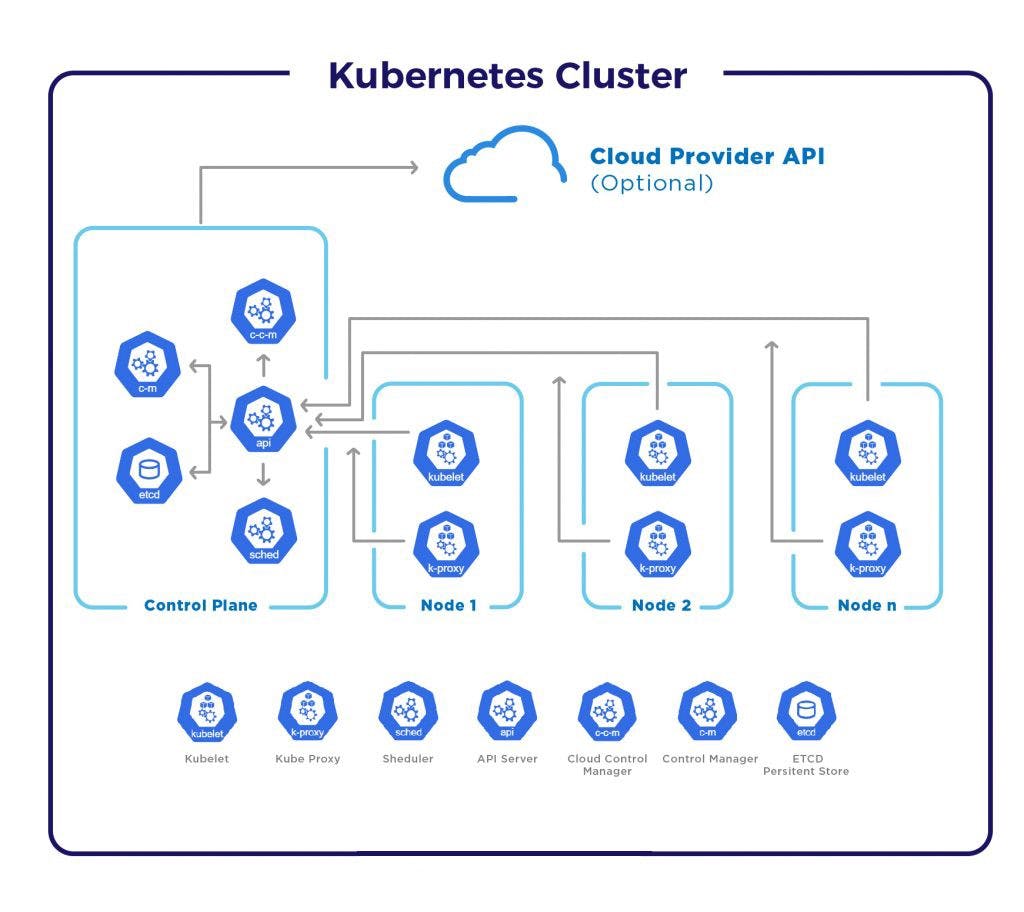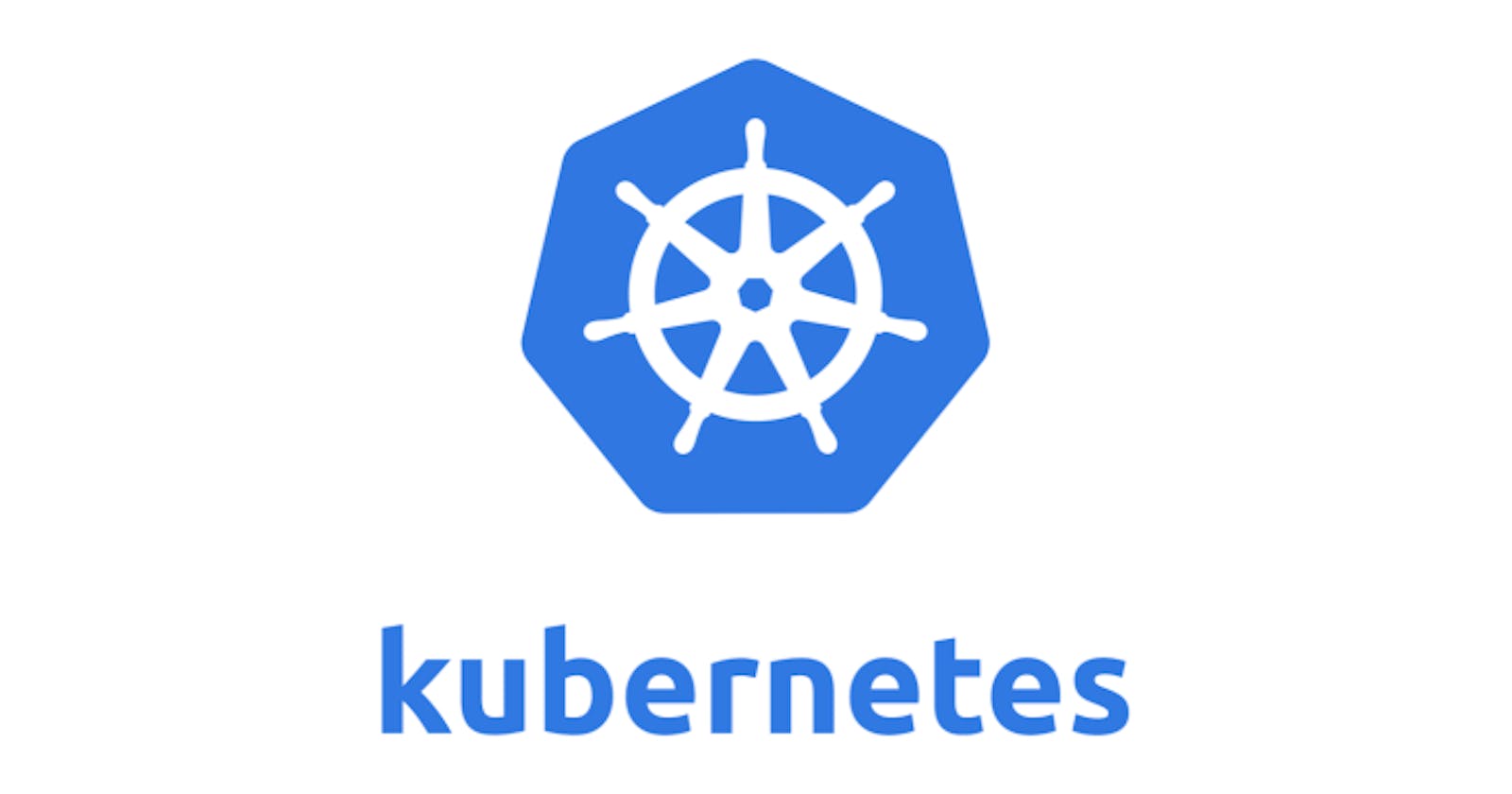Welcome to < Kubernetes! >
Kubernetes is an open-source container orchestration system for automating software deployment, scaling, and management.
Kubernetes
Kubernetes is an open-source container orchestration system for automating software deployment, scaling, and management. Google originally designed Kubernetes, but the Cloud Native Computing Foundation now maintains the project.

Client Configuration
Setup autocomplete in bash; bash-completion package should be installed first
source <(kubectl completion bash)View Kubernetes config
kubectl config viewView specific config items by json path
kubectl config view -o jsonpath='{.users[?(@.name == "k8s")].user.password}'Set credentials for
foo.kuberntes.comkubectl config set-credentials kubeuser/foo.kubernetes.com --username=kubeuser --password=kubepasswordSet active namespace
kubectl config set-context --current --namespace=namespace_name
Viewing, Finding resources
List all services in the namespace
kubectl get servicesList all pods in all namespaces in wide format
kubectl get pods -o wide --all-namespacesList all pods in json (or yaml) format
kubectl get pods -o jsonDescribe resource details (node, pod, svc)
kubectl describe nodes my-nodeList services sorted by name
kubectl get services --sort-by=.metadata.nameList pods sorted by restart count
kubectl get pods --sort-by='.status.containerStatuses[0].restartCount'Rolling update pods for frontend-v1
kubectl rolling-update frontend-v1 -f frontend-v2.jsonScale a replicaset named 'foo' to 3
kubectl scale --replicas=3 rs/fooScale a resource specified in "foo.yaml" to 3
kubectl scale --replicas=3 -f foo.yamlExecute a command in every pod / replica
for i in 0 1; do kubectl exec foo-$i -- sh -c 'echo $(hostname) > /usr/share/nginx/html/index.html'; done
Manage Resources
Get documentation for pod or service
kubectl explain pods,svcCreate resource(s) like pods, services or daemonsets
kubectl create -f ./my-manifest.yamlApply a configuration to a resource
kubectl apply -f ./my-manifest.yamlStart a single instance of Nginx
kubectl run nginx --image=nginxCreate a secret with several keys
cat <<EOF | kubectl create -f - apiVersion: v1 kind: Secret metadata: name: mysecret type: Opaque data: password: $(echo "s33msi4" | base64) username: $(echo "jane"| base64) EOFDelete a resource
kubectl delete -f ./my-manifest.yaml
Monitoring & Logging
Deploy Heapster from Github repository
kubectl create -f deploy/kube-config/standalone/Show metrics for nodes
kubectl top nodeShow metrics for pods
kubectl top podShow metrics for a given pod and its containers
kubectl top pod pod_name --containersDump pod logs (stdout)
kubectl logs pod_nameStream pod container logs (stdout, multi-container case)
kubectl logs -f pod_name -c my-container
Interacting with running pods
Run command in pod
kubectl exec pod_name -- command_nameRun command in pod with multiple containers
kubectl exec pod_name -c container_name -- command_nameGet terminal of pod
kubectl exec -it pod_name /bin/shGet terminal of a container running in pod with multiple containers
kubectl exec -it pod_name -c container_name /bin/sh

